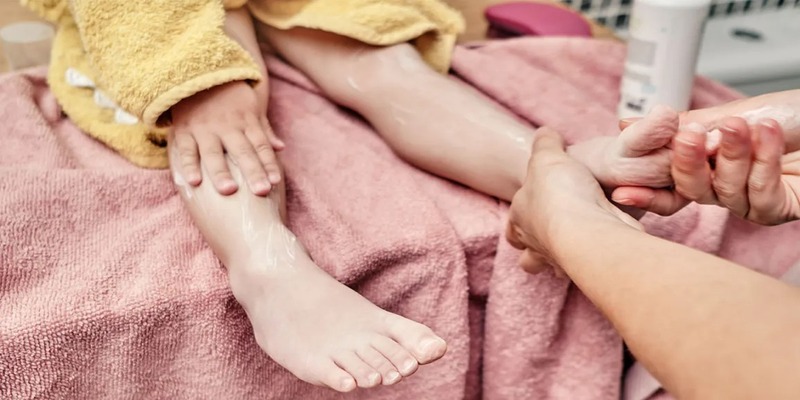Psoriasis is a persistent inflammatory disorder that affects the skin. The most common psoriasis involves scaly skin areas known as plaques. Some persons with psoriasis also develop psoriatic arthritis, which causes joint discomfort and stiffness. Some persons with psoriasis discovered that their symptoms intensified. Pandemic-related stress may be responsible for this.
Stress And Psoriasis

Specific causes might create a psoriasis flare, which happen when psoriasis symptom grow worse. Stress is a typical psoriasis cause.
Studies reveal that the association between psoriasis and mental health runs both ways. In turn, increased stress and despair may lead to more psoriasis outbreaks.
Stress
In a worldwide poll of persons with psoriasis, 42.7%Trusted Sources reported their psoriasis symptoms had increased throughout the epidemic. Psoriasis symptoms were reported to worsen by more women than males.
Marginalization And Unemployment
These actions have disturbed people's daily routines, pushed them further apart from their communities, and cost them jobs and money. Loss of income during the epidemic was linked to worsening psoriasis symptoms in a 2020 online survey of persons with psoriasis in China. Limiting one's time spent outdoors was also linked to worsening symptoms.
Health Care Availability
Several hospitals and medical facilities have stopped scheduling in-person visits during the epidemic to protect their patients. This has made it more challenging for some people to seek treatment for psoriasis, anxiety, despair, or other health concerns.
The loss of health insurance exacerbates the inability to pay for medical care. According to estimates by the Commonwealth Fund, many millions of Americans may have lost access to affordable health insurance via their workplaces due to the epidemic.
Aside from adding stress to an already difficult situation, these healthcare access restrictions might result in delays or disruptions in treatment.
Treatment Worries For Psoriasis

Prolonged systemic therapy, such as biologic pharmaceuticals and other injectable or oral medications, is a common practice for treating moderate to severe psoriasis. Many systemic drugs alter the immune system, which has prompted worries about how they can affect a person's capacity.
However, psoriasis patients may still have worries.
Flares of Psoriasis After Immunization
Four individuals at a single clinic experienced psoriasis flare-ups following influenza vaccination, according to research published in December 2020 by a reputable academic journal. However, this is a relatively tiny sample.
Researchers noticed that immunizations are an infrequent cause of psoriasis flare-ups. Of the 30,420 participants in the Moderna phase, three clinical trials for the SARS-CoV-2 vaccine, according to a 2020 controlled experiment.
Suggestions for Handling Stress
The following techniques have been recommended by the Centers for Disease Control and Prevention (CDC) as methods of dealing with stress during the pandemic:
- Take pauses from reading, viewing, or listening to the news, including reports on the epidemic.
- Schedule some downtime for deep breathing exercises, meditation, or other pastimes you like.
- Join the community and faith-based groups.
- Attempt to get adequate sleep, maintain a healthy diet, and avoid substance abuse.
Regular exercise can also help decrease stress, which may have advantages for psoriasis. Several nations have eased restrictions on going outside and being physically active.
Treatment's Significance
If it can be helped, the task force recommends that psoriatic disease patients refrain from using systemic steroids for extended periods. The task force is that the minimum effective dose of systemic steroids is used while using them for extended periods.
Prescribed drugs should not be stopped without first consulting a physician. A medical expert can help them weigh the pros and cons of a therapy adjustment.







